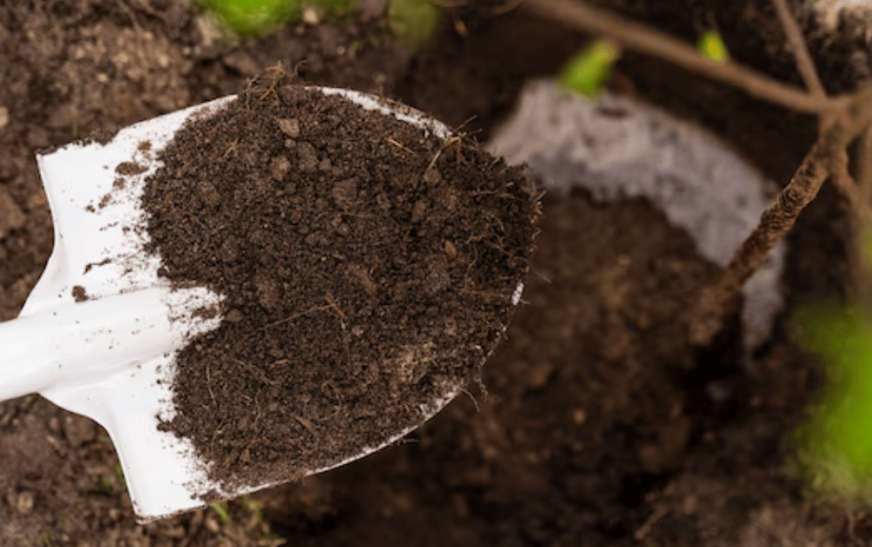Soil health and fertility are crucial for productive agriculture and gardening. Among the various organic materials used to enhance soil quality, cow manure is a common and effective choice. However, there is often confusion about the relationship between cow manure and humus. This article will explore whether cow manure is considered humus, how it contributes to soil health, and how it compares to other soil amendments.
1. Understanding Cow Manure and Humus
Cow Manure
Cow manure is the fecal matter produced by cows and is widely used in agriculture and gardening as a natural fertilizer. It is rich in organic matter, nutrients, and beneficial microorganisms that contribute to soil fertility. Cow manure can come in various forms, including fresh, composted, and aged.
Key Components of Cow Manure:
- Organic Matter: Includes plant residues and other organic materials that decompose over time.
- Nutrients: Contains essential nutrients like nitrogen, phosphorus, and potassium, which are crucial for plant growth.
- Microorganisms: Hosts a range of beneficial microorganisms that help break down organic matter and improve soil structure.
Humus
Humus is a dark, organic material formed from the decomposition of plant and animal matter in the soil. It is a key component of healthy soil and is known for its ability to improve soil structure, water retention, and nutrient availability.
Characteristics of Humus:
- Stable Organic Matter: Humus is the end product of the decomposition process, consisting of stable organic compounds.
- High Nutrient Content: It holds nutrients in a form that plants can easily access.
- Improved Soil Structure: Contributes to the formation of soil aggregates, enhancing soil aeration and water infiltration.
2. Is Cow Manure Humus?
Cow manure itself is not humus. However, it plays a significant role in the formation of humus within the soil. Here’s how the process works:
Decomposition of Cow Manure
When cow manure is applied to soil, it undergoes a decomposition process involving microorganisms and other soil organisms. During decomposition, the organic matter in cow manure breaks down into simpler compounds. This process occurs in several stages:
- Initial Decomposition: Fresh cow manure contains large, undecomposed particles of organic matter. Microorganisms start breaking down these particles into smaller pieces.
- Intermediate Decomposition: As decomposition progresses, the organic matter becomes more stable. Microorganisms continue to break down the material, converting it into humus-like substances.
- Formation of Humus: Over time, the decomposed organic matter in cow manure further transforms into humus. This stable organic material improves soil structure and nutrient availability.
Cow Manure vs. Humus
Cow Manure:
- Composition: Fresh cow manure contains a mix of undigested plant material, fecal matter, and urine.
- Nutrient Content: Rich in nutrients and organic matter, but may need to be composted or aged before use to reduce the risk of pathogens and improve nutrient availability.
- Application: Often applied directly to soil or used as compost.
Humus:
- Composition: Fully decomposed organic matter that has undergone microbial and chemical transformations.
- Nutrient Content: Holds nutrients in a form that is readily available to plants and helps retain moisture in the soil.
- Function: Enhances soil structure, water retention, and nutrient availability.
3. Benefits of Using Cow Manure in Soil
Although cow manure is not humus, it offers several benefits to soil health and fertility:
Nutrient Enrichment
Cow manure is a valuable source of essential nutrients, including nitrogen, phosphorus, and potassium. These nutrients are vital for plant growth and development. When properly composted, cow manure releases these nutrients slowly, providing a steady supply of food for plants.
Improved Soil Structure
The organic matter in cow manure contributes to the formation of soil aggregates, which improves soil structure. Better soil structure enhances aeration, water infiltration, and root penetration. This results in healthier plant growth and reduced soil erosion.
Enhanced Microbial Activity
Cow manure introduces beneficial microorganisms into the soil. These microorganisms play a crucial role in breaking down organic matter, improving nutrient cycling, and promoting soil health. Increased microbial activity also helps in the formation of humus over time.
Water Retention
The organic matter in cow manure helps to improve soil’s water-holding capacity. This is especially beneficial in sandy soils that tend to drain quickly. Improved water retention reduces the need for frequent irrigation and helps plants withstand drought conditions.
4. Proper Use and Application of Cow Manure
To maximize the benefits of cow manure and avoid potential issues, follow these guidelines for its proper use and application:
Composting Cow Manure
Composting cow manure helps to accelerate the decomposition process and reduce potential pathogens. Composting also stabilizes the organic matter, making it easier for plants to access the nutrients.
Steps for Composting:
- Gather Materials: Collect fresh cow manure, straw, leaves, and other organic materials.
- Create Piles: Build compost piles or use compost bins to mix the materials.
- Aerate Regularly: Turn the compost piles regularly to ensure proper aeration and decomposition.
- Monitor Moisture: Keep the compost moist but not too wet to facilitate decomposition.
Aging Cow Manure
Aging cow manure involves allowing it to decompose over time before application. Aged manure is less likely to contain pathogens and has a more stable nutrient content.
Aging Tips:
- Store Manure: Keep manure in a designated area away from water sources.
- Turn Manure: Regularly turn the manure to promote even decomposition.
- Use After Aging: Apply aged manure to soil to enhance its fertility and structure.
Application Rates
Apply cow manure based on the nutrient needs of your plants and soil conditions. Over-application can lead to nutrient runoff and environmental issues. Follow recommended application rates for optimal results.
5. Comparing Cow Manure to Other Soil Amendments
Cow manure is just one of many organic materials used to improve soil health. Here’s how it compares to other common soil amendments:
Compost
Compost:
- Composition: A mixture of various organic materials, including food scraps, yard waste, and manure.
- Benefits: Provides a balanced source of nutrients, improves soil structure, and enhances microbial activity.
- Comparison: Cow manure is rich in nutrients but may require composting or aging. Compost provides a more balanced nutrient profile and is often more stable.
Green Manure
Green Manure:
- Composition: Plants grown specifically to be tilled into the soil.
- Benefits: Adds organic matter, improves soil structure, and increases nutrient content.
- Comparison: Green manure provides nutrients and organic matter similar to cow manure but is grown specifically for soil improvement.
Peat Moss
Peat Moss:
- Composition: Partially decomposed plant material harvested from peat bogs.
- Benefits: Improves soil structure, water retention, and acidity.
- Comparison: Peat moss helps with soil structure and water retention but lacks the nutrient content of cow manure.
6. Conclusion
Cow manure is not humus, but it plays a vital role in the formation of humus and improving soil health. By understanding the decomposition process and proper application techniques, you can effectively use cow manure to enhance soil fertility, structure, and overall plant growth. While cow manure offers numerous benefits, it is essential to use it correctly and consider it alongside other soil amendments for optimal results.
For more insights on soil health and sustainable agriculture practices, visit Backstageviral.com, where you can find expert advice and resources to help you achieve the best results in your gardening and farming endeavors.
Also Read: How To Get The Perfect Light Brown Nails Color Backstageviral.com






